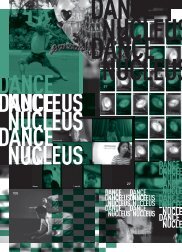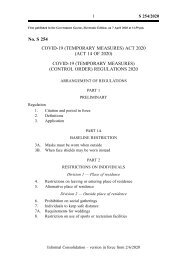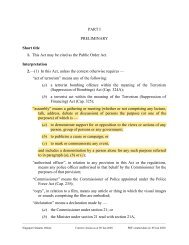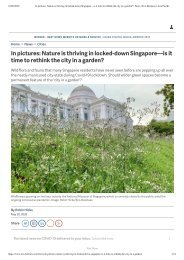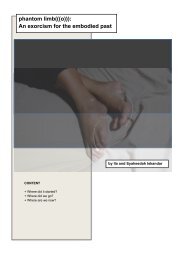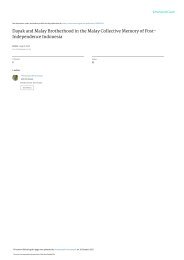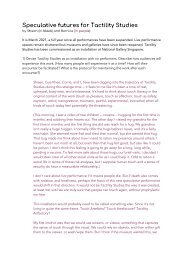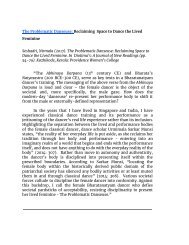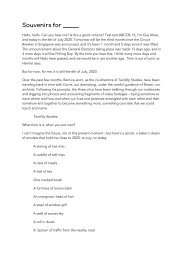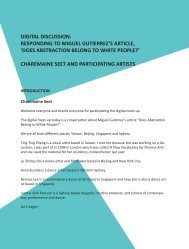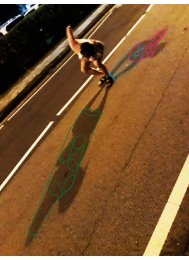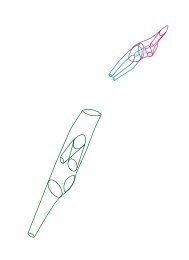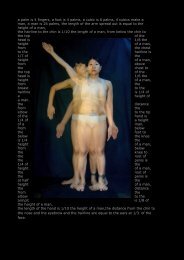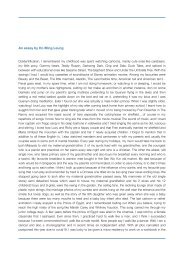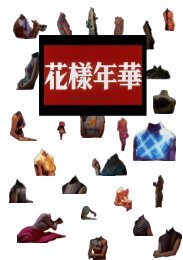FUSE#2
FUSE is a bi-annual publication that documents the projects at Dance Nucleus .
FUSE is a bi-annual publication that documents the projects at Dance Nucleus .
Create successful ePaper yourself
Turn your PDF publications into a flip-book with our unique Google optimized e-Paper software.
SCOPE#3<br />
There Is Speficifisfety<br />
- The Work As Scribed Text.<br />
by Lee Mun Wai<br />
Some questions I posed to myself during rehearsals include:<br />
What are the ways of acknowledging the other bodies?<br />
How many relations can I handle?<br />
What is the nature of each relation?<br />
How am I gazing?<br />
How am I being gazed at?<br />
What is moving the body?<br />
What am I acknowledging?<br />
When do shifts happen?<br />
What happens when a shift happens?<br />
How long does it take for a thing to become something else?<br />
The answering of these questions then becomes the doing of the dance.<br />
The answering then becomes the performance.<br />
One thing that was mentioned a lot in our rehearsals was the idea of<br />
a mode of inhabiting and a mode of achievement. These modes<br />
were modes of performance and they could be treated as opposite<br />
ends of the spectrum that Ren Xin and I were modulating ourselves<br />
within. A large part of what I have described above – about learning<br />
how to listen, navigate and negotiate – exists closer to the “mode of<br />
inhabiting” end of the spectrum. That is not to say that the “mode of<br />
achievement” end is not important. We soon realised that the work<br />
would tend to meander unendingly and uninterestingly if we only<br />
parked ourselves on the end closer to “mode of inhabiting”. Perhaps<br />
it might then be of interest to unpack the idea of what constitutes as<br />
“uninteresting”. What did it mean to say that a part of our dance was<br />
uninteresting? Uninteresting to whom? To us? To the audience? And<br />
by subsequently trying to negotiate these uninteresting parts, what<br />
kinds of pressures could we have been acquiescing to? Were we<br />
giving in too easily to a kind of conventional mode of watching? What<br />
alternative strategies did we have to get around these uninteresting<br />
parts? Could one of the strategies have been staying steadfast in<br />
this uninteresting part, to resist the want to get rid of it as soon as it<br />
appeared, in order for something to organically appear later on?<br />
Occupying either end of the spectrum was not useful to the work.<br />
Instead, we were modulating appropriately within the spectrum<br />
throughout the work, understanding that at some points, it would be<br />
necessary for certain situations to peak, and at others it was<br />
imperative to dissolve something that had been going on for some<br />
time even though it felt like it had some relevance. Indeed, the<br />
knowledge of how and when to employ these strategies of<br />
negotiation were honed during our rehearsals.<br />
I see you see her see them see us see me.<br />
105 106




